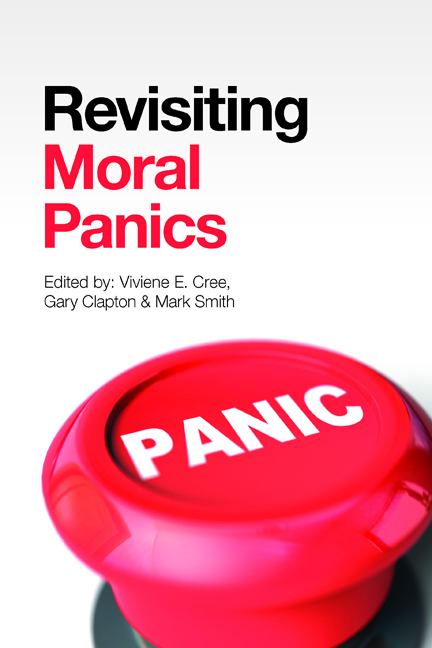Book contents
- Frontmatter
- Contents
- Contributors
- Preface
- Commentary moral panics yesterday, today and tomorrow
- Part One Gender and the family
- Part Two Moral panics in our time? Childhood and youth
- Part Three The state, government and citizens
- Part Four Moral crusades, moral regulation and morality
- Afterword the moral in moral panics
- Conclusion Moral panics and beyond
- Index
Preface
Published online by Cambridge University Press: 08 March 2022
- Frontmatter
- Contents
- Contributors
- Preface
- Commentary moral panics yesterday, today and tomorrow
- Part One Gender and the family
- Part Two Moral panics in our time? Childhood and youth
- Part Three The state, government and citizens
- Part Four Moral crusades, moral regulation and morality
- Afterword the moral in moral panics
- Conclusion Moral panics and beyond
- Index
Summary
This volume begins and ends with a question: how useful are ideas of moral panic to the social issues and anxieties that confront us today? Forty years on from the publication of Stan Cohen's seminal study Folk Devils and Moral Panics, does this remain a helpful way of thinking about social concerns, or should the concept be consigned to the sociological history books as an amusing, but ultimately flawed, theoretical device? ‘Moral panic’ is, after all, one of the foremost sociological terms that has crossed over from academic to public discourse; in doing so, it has lost a great deal of its rigour and, arguably, its value. All the contributors to the volume are, in their own ways, engaging critically with the relevance of moral panic ideas for their own understandings of some of the most pressing personal, professional and political concerns of the day. They do not all come up with the same conclusions, but they do agree that moral panics – no matter how we think of them – focus on the social issues that worry us most.
The volume takes forward findings from an Economic and Social Research Council (ESRC) sponsored research seminar series that ran between 2012 and 2014 at events across the UK. The seminar series was designed to mark the 40th anniversary of Folk Devils and Moral Panics; and to bring together international and UK academics, researchers and practitioners from a range of disciplines to debate and discuss moral panics in the 21st century. The three main organisers had, independently of one another, written about events and happenings that had caused great anxiety within social work and within society as a whole: satanic abuse (Clapton, 1993); sex trafficking (Cree, 2008); abuse in residential childcare (Smith, 2008 and 2010). In each case, we had challenged accepted accounts of the issues and asked questions about the real-life (often negative) consequences of holding particular conceptualisations of these difficult topics. We had not, at that time, used the concept of moral panic as the foremost tool for analysis, but we had all been interested in the ideas of discourse, labelling, deviancy amplification and social control, all of which connect with ideas of moral panic.
- Type
- Chapter
- Information
- Revisiting Moral Panics , pp. xi - xviPublisher: Bristol University PressPrint publication year: 2015



